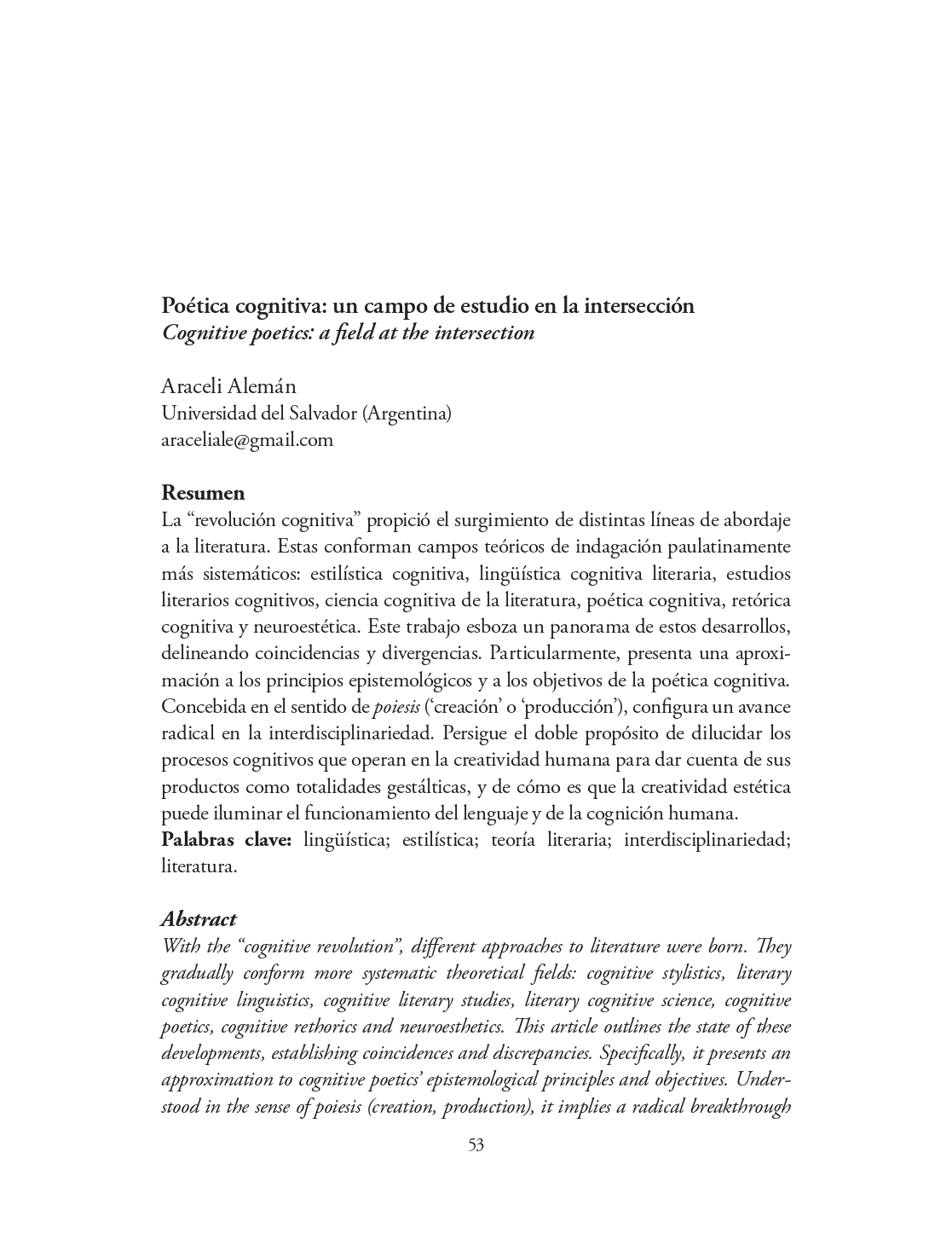Abstract
With the “cognitive revolution”, different approaches to literature were born. They gradually conform more systematic theoretical fields: cognitive stylistics, literary cognitive linguistics, cognitive literary studies, literary cognitive science, cognitive poetics, cognitive rethorics and neuroesthetics. This article outlines the state of these developments, establishing coincidences and discrepancies. Specifically, it presents an approximation to cognitive poetics’ epistemological principles and objectives. Understood in the sense of poiesis (creation, production), it implies a radical breakthrough in interdisciplinarity. It seeks the double purpose of elucidating the cognitive processes that operate in human creativity in order to account for its products as gestalts and how esthetic creativity can illuminate language and human cognition functioning.

This work is licensed under a Creative Commons Attribution 4.0 International License.
Copyright (c) 2019 Diseminaciones

